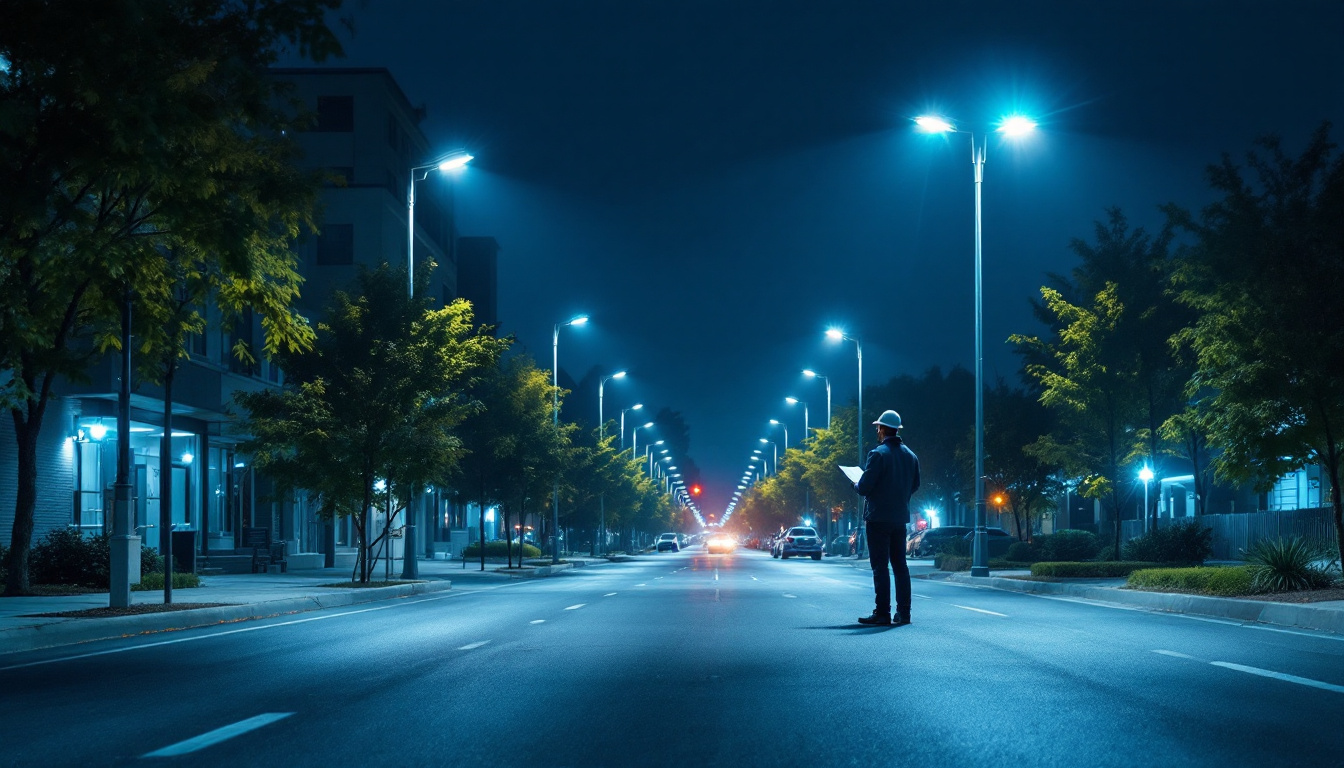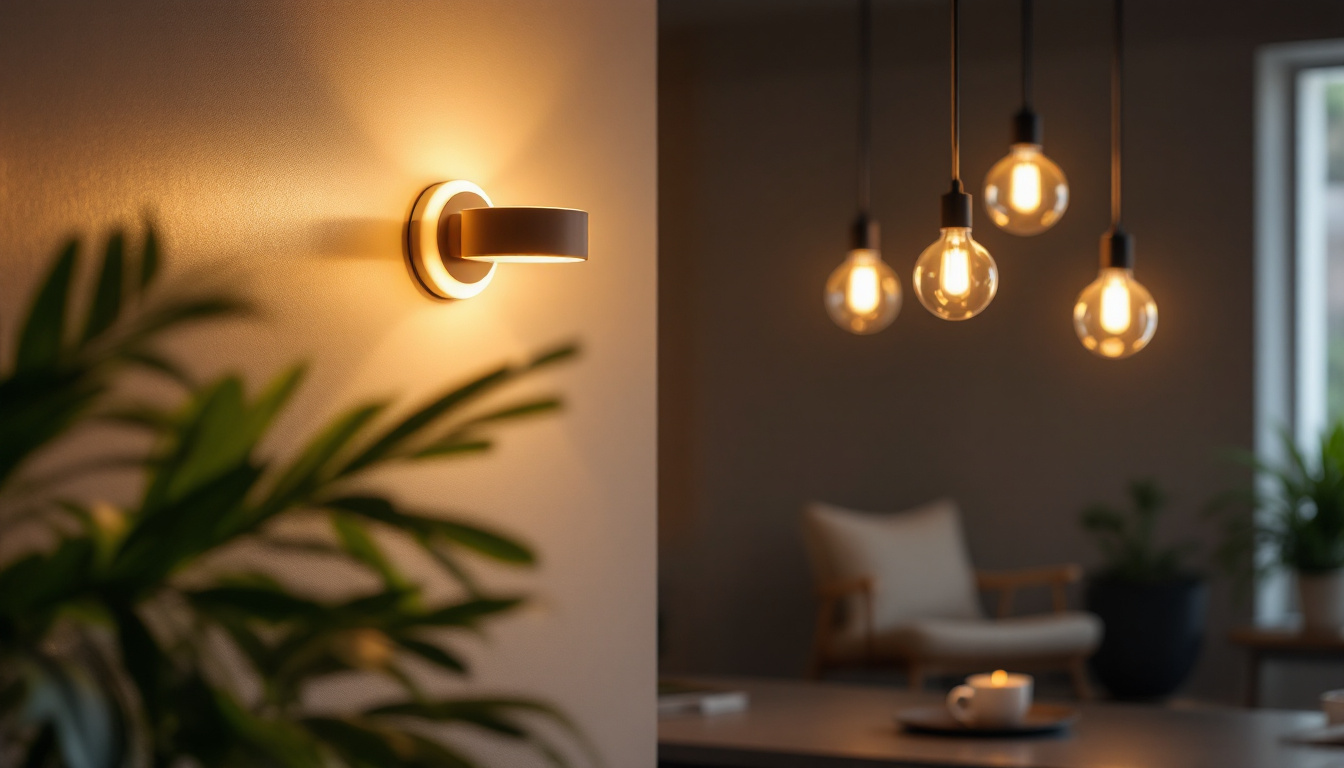
As the demand for sustainable and energy-efficient solutions continues to grow, solar-powered garden lights have become a popular choice for both homeowners and lighting contractors. These lights not only enhance the aesthetics of outdoor spaces but also contribute to environmental conservation. For lighting contractors looking to master the art of solar-powered garden lighting, understanding the best options available and the nuances of installation is essential. This article delves into the best solar-powered garden lights and provides invaluable tips for lighting contractors.
Solar-powered garden lights are designed to harness sunlight during the day and convert it into energy to power LED bulbs at night. This innovative technology eliminates the need for wiring and reduces electricity costs, making it an attractive option for outdoor lighting. However, not all solar lights are created equal, and understanding their components and functionality is crucial for effective installation and customer satisfaction.
Solar garden lights typically consist of several key components: a solar panel, rechargeable battery, LED light, and a light sensor. The solar panel absorbs sunlight and converts it into electrical energy, which is stored in the rechargeable battery. When the sun sets, the light sensor detects the darkness and activates the LED light, illuminating the garden space.
It’s important for contractors to be familiar with the specifications of these components. For instance, the efficiency of the solar panel directly affects the performance of the lights. Higher wattage panels can charge batteries more quickly, leading to longer operational times at night. Additionally, the type and capacity of the battery play a significant role in how long the lights can function after sunset. Lithium-ion batteries, for example, tend to have a longer lifespan and better performance in colder temperatures compared to traditional nickel-cadmium batteries, making them a preferred choice for many solar lighting systems.
There are various types of solar garden lights available on the market, each designed for specific applications. Path lights, for example, are ideal for illuminating walkways and driveways, while spotlights can highlight garden features or architectural elements. String lights offer a decorative touch, perfect for patios or outdoor gatherings.
Contractors should also consider the brightness and color temperature of the lights. Some clients may prefer warm white lights for a cozy ambiance, while others may opt for cooler tones for a more modern look. Understanding these preferences will help contractors provide tailored solutions that meet their clients’ needs. Additionally, the placement of solar lights is crucial; they should be positioned in areas that receive ample sunlight throughout the day to ensure optimal charging. Factors such as surrounding trees or buildings that cast shadows can significantly impact the performance of solar lights, making strategic placement essential for achieving the desired lighting effect.
When selecting solar-powered garden lights, contractors should evaluate several factors to ensure they recommend the best options to their clients. Quality, durability, and performance are paramount, as these lights will be exposed to various weather conditions.
High-quality solar lights are typically constructed from durable materials such as stainless steel or high-grade plastic, which can withstand the elements. Contractors should look for products with a good warranty, indicating the manufacturer’s confidence in their durability. Additionally, lights with IP ratings (Ingress Protection) can provide assurance against dust and water ingress, making them suitable for outdoor use. It’s also worth noting that some manufacturers incorporate UV-resistant coatings to prevent fading and deterioration from prolonged sun exposure, further enhancing the lifespan of the lights.
Performance metrics such as lumens, battery capacity, and charging time are crucial when evaluating solar garden lights. Lumens measure the brightness of the light; thus, a higher lumen count indicates a brighter light. For most garden applications, lights with a lumen output of 100 to 200 are generally sufficient, while decorative or accent lights may require lower outputs. Furthermore, the color temperature of the light can significantly impact the ambiance of the garden. Warmer tones (around 2700K to 3000K) create a cozy atmosphere, while cooler tones (5000K and above) can provide a more modern and vibrant feel.
The battery capacity, often measured in milliamp hours (mAh), affects how long the lights will operate after sunset. A higher mAh rating typically means longer operational hours. Additionally, the charging time should be considered, as some lights may take longer to charge than others, impacting their usability. It’s beneficial to look for solar lights equipped with advanced battery technologies, such as lithium-ion batteries, which not only charge faster but also have a longer lifespan compared to traditional nickel-cadmium batteries. This can be especially advantageous in regions with shorter daylight hours during certain seasons, ensuring that the lights remain functional throughout the night.
Proper installation is key to maximizing the performance of solar-powered garden lights. Lighting contractors should follow specific guidelines to ensure that the lights function optimally and meet client expectations.
Before installation, a thorough site assessment is essential. Contractors should evaluate the amount of sunlight the area receives throughout the day. Ideally, solar lights should be placed in locations that receive direct sunlight for at least six hours daily. Areas shaded by trees, buildings, or other obstructions may require alternative lighting solutions or adjustments in placement.
Additionally, understanding the landscape and design preferences of the client can guide the placement of lights. For example, accent lights can be strategically positioned to highlight specific plants or features, enhancing the overall aesthetic of the garden.
When installing solar garden lights, spacing is crucial. Lights should be evenly distributed to avoid dark spots while ensuring they do not overwhelm the space. A common guideline is to place path lights about six to eight feet apart, depending on their brightness and the desired effect.
Contractors should also consider the height of the lights. Taller lights can illuminate a broader area, while shorter lights may create a more intimate setting. Balancing height and spacing will create a visually appealing and functional outdoor space.
While solar-powered garden lights require less maintenance than traditional lighting options, some care is still necessary to ensure longevity and performance. Educating clients on proper maintenance practices can enhance their satisfaction and the overall effectiveness of the lighting system.
Solar panels should be kept clean to ensure optimal performance. Dust, dirt, and debris can accumulate on the panels, reducing their ability to absorb sunlight. Contractors can recommend a regular cleaning schedule, using a soft cloth or sponge and mild soap to gently wipe the panels. This simple task can significantly improve the efficiency of the lights.
Additionally, checking for any obstructions, such as overgrown plants or debris, is essential. Ensuring that the solar panels have an unobstructed view of the sky will maximize their charging capabilities.
Over time, the rechargeable batteries in solar lights may lose their capacity to hold a charge. Contractors should inform clients about the signs of battery failure, such as dim lighting or shorter operational times. Replacing batteries with high-quality, compatible options can restore the lights’ performance and extend their lifespan.
It’s advisable to use batteries specifically designed for solar lights, as they are typically optimized for the unique charging cycles of solar-powered systems.
Lighting contractors should be aware of local regulations and potential incentives related to solar-powered installations. Many regions encourage the use of renewable energy sources through rebates, tax credits, or grants, which can make solar lighting solutions more appealing to clients.
Before beginning any installation, contractors should familiarize themselves with local building codes and regulations regarding outdoor lighting. Some municipalities may have restrictions on light pollution or specific requirements for energy-efficient installations. Understanding these regulations will help contractors avoid potential fines and ensure compliance.
Many homeowners are motivated by financial incentives to adopt solar technology. Contractors can assist clients in researching available rebates or tax credits for solar installations. By highlighting the long-term savings and environmental benefits, contractors can help clients make informed decisions about their lighting options.
The solar-powered lighting industry is continuously evolving, with new technologies and designs emerging regularly. Staying informed about these trends can give contractors a competitive edge and enhance their service offerings.
Smart technology is making its way into solar lighting solutions, allowing for enhanced control and customization. Features such as motion sensors, remote control, and integration with smart home systems are becoming increasingly popular. These advancements not only improve convenience but also enhance energy efficiency.
Contractors should consider recommending smart solar lights to clients looking for modern solutions. These products often come with adjustable brightness settings and timers, allowing users to optimize their lighting based on specific needs and preferences.
As aesthetics play a significant role in outdoor lighting, innovative designs are emerging to cater to various tastes. From sleek, modern fixtures to whimsical, artistic designs, contractors can offer a range of options that align with their clients’ preferences.
Incorporating unique designs can set a project apart and create a memorable outdoor experience. Contractors should stay updated on the latest trends in solar lighting design to provide clients with the most appealing options.
Solar-powered garden lights present a sustainable and efficient solution for outdoor lighting, making them an excellent choice for lighting contractors and their clients. By understanding the components, performance metrics, and installation techniques, contractors can master the art of solar lighting and provide exceptional service.
Moreover, staying informed about maintenance, local regulations, and emerging trends will ensure that contractors remain competitive in the ever-evolving landscape of outdoor lighting. Embracing solar technology not only benefits clients but also contributes to a greener future, making it a win-win for everyone involved.
Ready to elevate your lighting projects with the best solar-powered garden lights? At LumenWholesale, we provide lighting contractors with the highest quality, spec-grade lighting products at prices that can’t be beaten. Say goodbye to local distributor markups and hello to a vast selection of reliable, high-performance lighting that meets the highest industry standards. With free shipping on bulk orders, you can stock up on premium lighting solutions without worrying about hidden fees or compromises. Don’t miss out on the perfect combination of quality, affordability, and convenience. Wholesale Lighting at the Best Value is just a click away. Enhance your service offerings and delight your clients with the sustainable brilliance of solar garden lighting from LumenWholesale.

Discover why LED solar flood lights are essential for any successful lighting project.

Discover essential strategies for future-proofing your lighting projects with cutting-edge electrical fixtures.

Discover how LED street lighting can be a game-changer for contractors looking to win more bids.

Explore the transformative impact of 5-6 inch lighting fixtures in contemporary design.